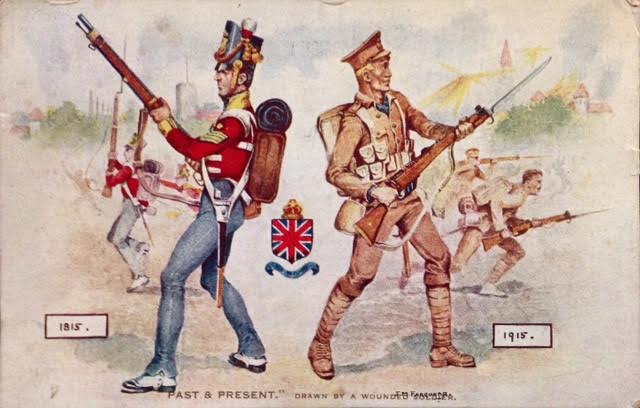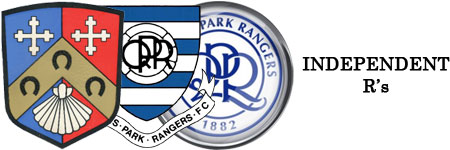The following servicemen had at some point in their careers, played for Queen’s Park Rangers and all tragically lost their lives serving their country:
Albert Edward Bonass was born in Yorkshire in 1911 and before joining the R’s in 1939 had played for Darlington, Chesterfield, West Hartlepool and York City.
He became a reserve policeman before joining the RAF. Between 1940 and 1945, he guested for a number of clubs including; Fulham, Watford and Southampton before losing his life when his Stirling bomber crashed in Tockwith on 8th October 1945.
Corporal Albert ‘Ben’ Butler was the first professional footballer in the ranks of the 17th Middlesex to be killed in action.
Frank Cannon began his career with Hitchin Town whilst working for a firm of Solicitors. After making 29 appearances for the Rangers, Frank moved on to West Ham.
Later he served with the Bedfordshire’s before transferring to the Essex Regiment, rising to the rank of Sgt. Major. Frank was killed by shrapnel at Ypres on 15th February 1916.
Charlie Clarke played in six league games for the R’s between 1936 and 1938. He was a Luton Town player at the time of his death in March 1943.
Joseph Dines – Apart from winning more than 30 amateur caps for England, he also played in all three matches in the 1912 Olympics in Stockholm for the Great Britain team, which earned him a gold medal.
He was one of three brothers to enlist but only survived hostilities for eleven days. Joseph was cut down on the Western Front by machine gun fire on 27th September 1918.
Albert Edwards made 17 1st team appearances for QPR and he also played for Aston Villa, Swindon Town, Bristol City and Newport County. He lost his like in the Great War.
 Alan Fowler guested a few times for the R’s during 1940/41 and also later in 1943/44, but was actually on Swindon Town’s books. Sgt. Fowler served in the Dorsetshire Regiment and lost his life in July 1944 following the D-Day landings.
Alan Fowler guested a few times for the R’s during 1940/41 and also later in 1943/44, but was actually on Swindon Town’s books. Sgt. Fowler served in the Dorsetshire Regiment and lost his life in July 1944 following the D-Day landings.
Oscar Horace Stanley Linkson enrolled with the 1st Battalion of the Middlesex Regiment. Pte. Linkson went missing on 8th August 1916 in the battle to take Guillemont Station. His body was never found and his mother never accepted that her son was dead, choosing to believe that he had run away to escape what she believed to be an unhappy marriage.
Evelyn Henry Lintott: He scored on his debut for Woking and later attended the Teacher Training College in Exeter. After graduating he took up a teaching position in Willesden and signed for QPR in 1907 as an amateur.
Our first full England international, Lt. Lintott was killed whilst leading his men of the 15th West Yorkshire Regiment on the first day of the Battle of the Somme.
Robert McLaren Law – His lone QPR appearance was against Plymouth Argyle in the final Southern League game of the 1910/11 season.
Pte. Law later served with the 4th Battalion Cameron Highlanders and was killed on 18th May 1915. The Glasgow Herald wrote the following about him two months later:
‘Private R McL Law, 4th Camerons, has died from wounds. In Civil Life he was employed with the British Legal Insurance Company and transferred to London about six years ago.
He joined the Army in London. Private Law who was only 24 years of age, was a well-known member of Bellahouston Harriers and while in London played football for Queen’s Park Rangers. His father resides at 19 Allison Street, Glasgow.’
John H. Pennifer arrived at QPR in 1913, and after just three appearances, he enlisted the following year. John was one of the many fatalities at the Battle of the Somme.
Albert Rogers joined the Rangers in 1907. Rogers scored 10 goals in his 34 appearances for the club. Three years later he was transferred to Bristol Rovers. He enlisted in the Middlesex Regiment and later joined the East Surrey’s. Albert was killed in action on 4th April 1918.
Harry Vernon Thornton – He made 37 appearances for QPR and also scored 10 goals. Harry was one of many other players to join the Footballer’s Battalion. He later died in France.
Corporal John Tosswill – John made three appearances for the Rangers before joining the Royal Engineers. He became a dispatch rider and returned home after being wounded. Sadly he passed away, aged just 24, on the operating table in Eastbourne Military Hospital on 28th September 1915.
Dennis Higgins – He played 30 times for QPR and later joined the Sportsmen’s Battalion. Dennis eventually became an officer, but was so badly injured at Ypres in Flanders that he never played again.
Also to be remembered are two R’s fans who sadly lost their lives in the recent conflict in Afghanistan:
Lance Corporal Tom Keogh – He came from the Hallfield Estate in Paddington and was only 24 when he died from a gunshot wound in Sangin, Helmand Province.
Acting Corporal David Barnsdale – 33 Engineer Regiment (Explosive Ordnance Disposal). He was the same age as Tom when he was killed clearing explosive devices. His parents laid a wreath on the Loftus Road centre circle prior to the Burnley home game in 2010.
WE WILL REMEMBER THEM
Steve Russell
(The above postcard is from my collection. It’s titled ‘Past & Present’ and states that it was ‘drawn by a wounded soldier’, J.M. Farquhar. On the reverse side it reads: ‘Proceeds to augment the Funds of the Grand Charity Matinee at Chiswick Empire on Thursday, July 25, 1918. The most enjoyable Programme ever witnessed.’
